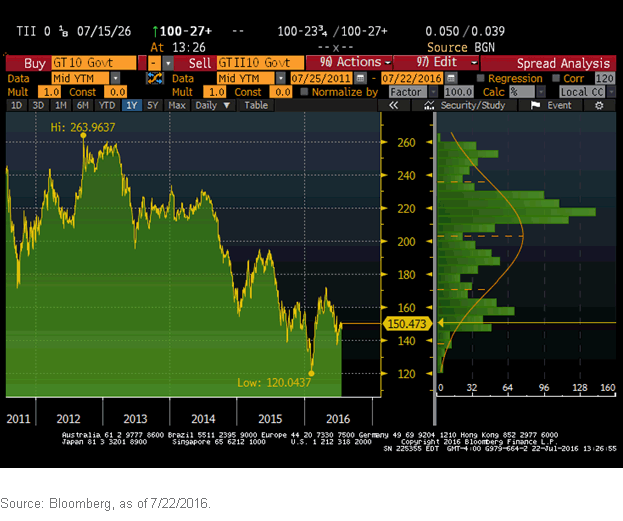 By Kevin Flanagan, Senior Fixed Income Strategist, WisdomTree
By Kevin Flanagan, Senior Fixed Income Strategist, WisdomTree
Special to the Financial Independence Hub
The last few months have certainly given the money and bond markets a lot of divergent news headlines to digest. Not surprisingly, the focus has been on negative rates abroad, geopolitical events and, a bit more recently, some better-than-expected employment news juxtaposed with a softer-than-expected GDP report. That begs the question: What about inflation? Isn’t that a key ingredient in the bond market mix?
Without a doubt, U.S. inflation data has taken a backseat for fixed income investors, and for good reason; there just haven’t been any fresh developments lately. Certainly, the conversation has shifted from a year ago, when deflation concerns were permeating market psychology. But the latest figures don’t elicit concerns that price pressures will be rearing their ugly head anytime soon, or at least that’s what the collective thinking is in the fixed income markets.
So, what does the inflation backdrop look like? According to the widely followed Consumer Price Index (CPI), the year-over-year inflation rate came in at +1.0% in June (Note 1)—very little changed from the readings posted over the last four months, but definitely higher than the +0.1% for the same month in 2015. The core gauge, which excludes food and energy, rose at a +2.3% annual clip and has been residing in a range last seen in 2012. There continues to be a large dichotomy between core goods (-0.6%) and core services (+3.2%) .(Note 2)









